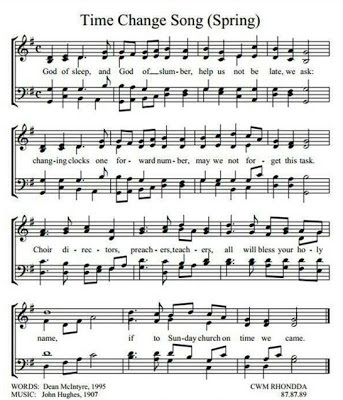I didn't much enjoy my time as a Cub Scout, it being another occasion to feel insecure around my peers. When I moved up to the only local Boy Scout troop, which was organized on roughly the same principles as was the island in Lord of the Flies, I didn't even last out the first year. But when I was teaching in Texas, an older teacher and Scoutmaster guilted me into joining him on one of his troop's camping trips. (Al Sauter: "Boy, Kingsbury, it would sure be a shame if those boys weren't able to go camping just because you were too selfish to change your weekend plans and provide them with another adult chaperone. It's your decision, of course.")
In short order, I found myself at the Sam Houston Council Scout Shop buying a uniform. While my Scouting experience had been easily discarded, that wasn't the case with the troop of which I became an assistant Scoutmaster. Al Sauter had personally recruited most of the boys from Jane Long Middle School, where we taught what are gently called "underprivileged youth" in the heart of gang-infested territory. For many of the boys in our troop, it was either pursuing an Eagle badge or joining a gang. I thought being a part of that venture was worth giving up some of my free time.
As a fairly hard-core Presbyterian, I've never been enchanted with Scouting's moral foundations. At best, it's a very generic version of what, in America, we've come to refer to as "Judeo-Christian," although, of course, Muslims, Buddhists, Bahais, et. al., are always welcome. Nonetheless, just as "duty to God" has a red-line border which can't be crossed (i.e., a Scout cannot be an atheist), so too has the duty to be "morally straight" had a definite meaning. Now, however, the Boys Scouts of America has determined to change that by permitting boys with "homosexual orientation" to become Scouts. At least the leadership is still willing to say "any sexual conduct, whether heterosexual or homosexual, by youth of Scouting age is contrary to the virtues of Scouting."

But how long will even that last? The BSA has determined to go in the same direction as America, and now "morally straight" will come to mean "well, you know, nice." At the same time, those of us who believe "morally straight" ought to mean what it has always meant are getting the same message we have gotten from our President (honorary president of the BSA, ironically): namely, that those of us who have not "evolved" as rapidly as he are no longer welcome to participate in the national conversation as moderated by himself.
And at the moment, that's what I feel regarding this moment. One more link to the past has been broken, and we have received one more reminder of just how difficult it is to participate in this society without compromising one's core beliefs. I have never had any sympathy with Christian separationists; the Incarnation, by itself, would appear to be God's word on the advisability of mingling with those of questionable faith or practice. While I do not want to be separate, I have begun to wonder when my country, like my president, will insist on separating me, my family, and my people from itself.



